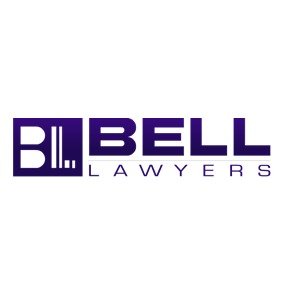Best Nonprofit & Charitable Organizations Lawyers in Penrith
Share your needs with us, get contacted by law firms.
Free. Takes 2 min.
List of the best lawyers in Penrith, Australia
About Nonprofit & Charitable Organizations Law in Penrith, Australia
Nonprofit and charitable organizations play a crucial role in providing community support and services across Penrith, Australia. They are formally recognized entities that focus on philanthropic objectives rather than generating profit. These organizations can take various legal forms, such as incorporated associations, companies limited by guarantee, or charitable trusts. In Penrith, as elsewhere in Australia, nonprofits must comply with both state and federal regulations to maintain their status and operate effectively. The law governing these entities ensures transparency, accountability, and the appropriate use of resources.
Why You May Need a Lawyer
Operating a nonprofit or charitable organization involves navigating complex legal processes. You may need a lawyer in situations involving:
- Forming a new nonprofit organization, including drafting and filing necessary documents
- Understanding and maintaining tax-exempt status
- Compliance with governance and reporting requirements
- Drafting and interpreting contracts and agreements
- Managing employment and volunteer related issues
- Resolving disputes within the organization or with third parties
- Altering the structure or purpose of the organization
- Handling donations and fundraising legalities
Local Laws Overview
Nonprofit and charitable organizations in Penrith are subject to a range of local and national laws:
- Incorporation Laws: Organizations can incorporate under the Associations Incorporation Act 2009 (NSW) which provides a simple structure.
- Taxation: Nonprofits may qualify for tax exemptions under Australian Tax Office (ATO) guidelines, but must comply with regulations to maintain these benefits.
- Fundraising: Under the Charitable Fundraising Act 1991, organizations must obtain authority from NSW Fair Trading to conduct fundraising activities.
- Governance: The Australian Charities and Not-for-profits Commission (ACNC) regulates charity governance and financial reporting.
- Employment Law: Nonprofits must adhere to the Fair Work Act 2009 regarding employment practices.
Frequently Asked Questions
What is the process to start a nonprofit in Penrith?
The process involves selecting a suitable legal structure, preparing the constitution, and registering the entity with the appropriate state and federal bodies, including the ACNC, if seeking charity status.
Do all nonprofits need to register with the ACNC?
No, only organizations seeking to be recognized as charities need to register with the ACNC, although it can be beneficial for obtaining tax exemptions and public trust.
Are there any ongoing compliance requirements for nonprofits?
Yes, nonprofits must fulfill annual financial reporting and governance obligations with relevant bodies such as the ACNC and ATO.
Can a nonprofit make a profit?
While nonprofits can generate surplus revenue, it must be reinvested into the organization’s objectives rather than distributed to members or directors.
What are the consequences of not complying with fundraising regulations?
Noncompliance can lead to fines, loss of fundraising privileges, and damage to public trust and reputation.
How does an organization maintain its tax-exempt status?
Organizations must comply with ATO requirements for tax concessions, including operating on a not-for-profit basis and adhering to any specific conditions outlined by the ATO.
Can a nonprofit change its objectives once established?
Yes, but changes must be reflected in the organization's constitution and may require approval from members and regulatory bodies.
Is it mandatory to have a board of directors?
Yes, most incorporated and charitable entities are required to have a board or committee to oversee governance and strategic direction.
What insurance is necessary for a nonprofit?
Common insurances include public liability, directors and officers liability, and professional indemnity, depending on the organization’s activities and risks.
Are volunteers subject to employment laws?
While volunteers are generally not covered under employment legislation, nonprofits have a duty of care to provide a safe volunteering environment.
Additional Resources
For further assistance, you may consider exploring the following resources:
- Australian Charities and Not-for-profits Commission (ACNC)
- NSW Fair Trading
- Australian Taxation Office (ATO)
- Law Access NSW for legal assistance and resources
- Local legal aid centers and pro bono services
Next Steps
If you require legal assistance in the field of nonprofit and charitable organizations, consider the following steps:
- Contact a local attorney specializing in nonprofit law for tailored advice and legal services.
- Reach out to statewide legal aid services for guidance and potential pro bono support.
- Attend workshops and seminars to gain a better understanding of the legal landscape.
- Join local nonprofit networks to gain insights from other organizations and professionals.
Lawzana helps you find the best lawyers and law firms in Penrith through a curated and pre-screened list of qualified legal professionals. Our platform offers rankings and detailed profiles of attorneys and law firms, allowing you to compare based on practice areas, including Nonprofit & Charitable Organizations, experience, and client feedback.
Each profile includes a description of the firm's areas of practice, client reviews, team members and partners, year of establishment, spoken languages, office locations, contact information, social media presence, and any published articles or resources. Most firms on our platform speak English and are experienced in both local and international legal matters.
Get a quote from top-rated law firms in Penrith, Australia — quickly, securely, and without unnecessary hassle.
Disclaimer:
The information provided on this page is for general informational purposes only and does not constitute legal advice. While we strive to ensure the accuracy and relevance of the content, legal information may change over time, and interpretations of the law can vary. You should always consult with a qualified legal professional for advice specific to your situation.
We disclaim all liability for actions taken or not taken based on the content of this page. If you believe any information is incorrect or outdated, please contact us, and we will review and update it where appropriate.









